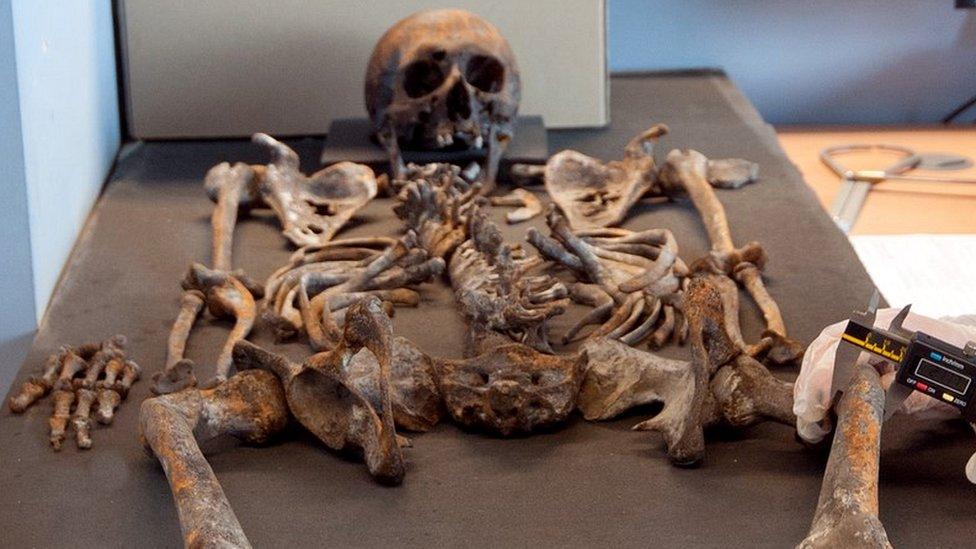Matthew Flinders: Australia explorer's remains found in HS2 dig
- Published
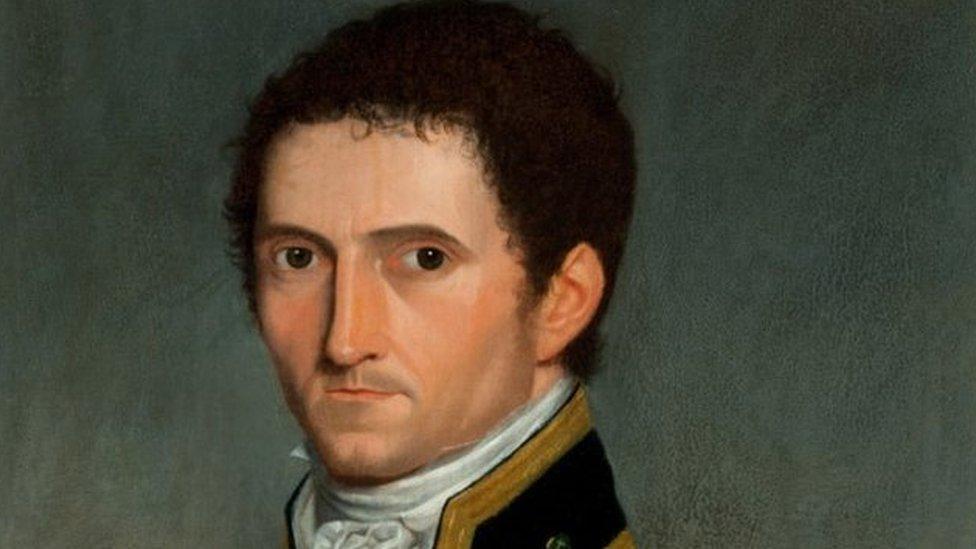
Captain Matthew Flinders is credited with naming Australia
The remains of explorer Captain Matthew Flinders have been identified by archaeologists working on the HS2 project in a London burial ground.
Captain Flinders led the first circumnavigation of Australia and is credited with naming the country.
Some 61,000 skeletons will be removed from St James's Gardens, where the station for the HS2 rail route will be built near London Euston station.
A recently discovered coffin showed the captain was buried on 23 July 1814.
The dig began in October - one of 60 archaeological sites between London and Birmingham being explored prior to the construction of the £55bn high-speed rail line.
It was known Captain Flinders was among the thousands of people buried at the site, which was built over when Euston station was expanded in the 19th Century but it was unclear whether his body or others would be able to be identified.
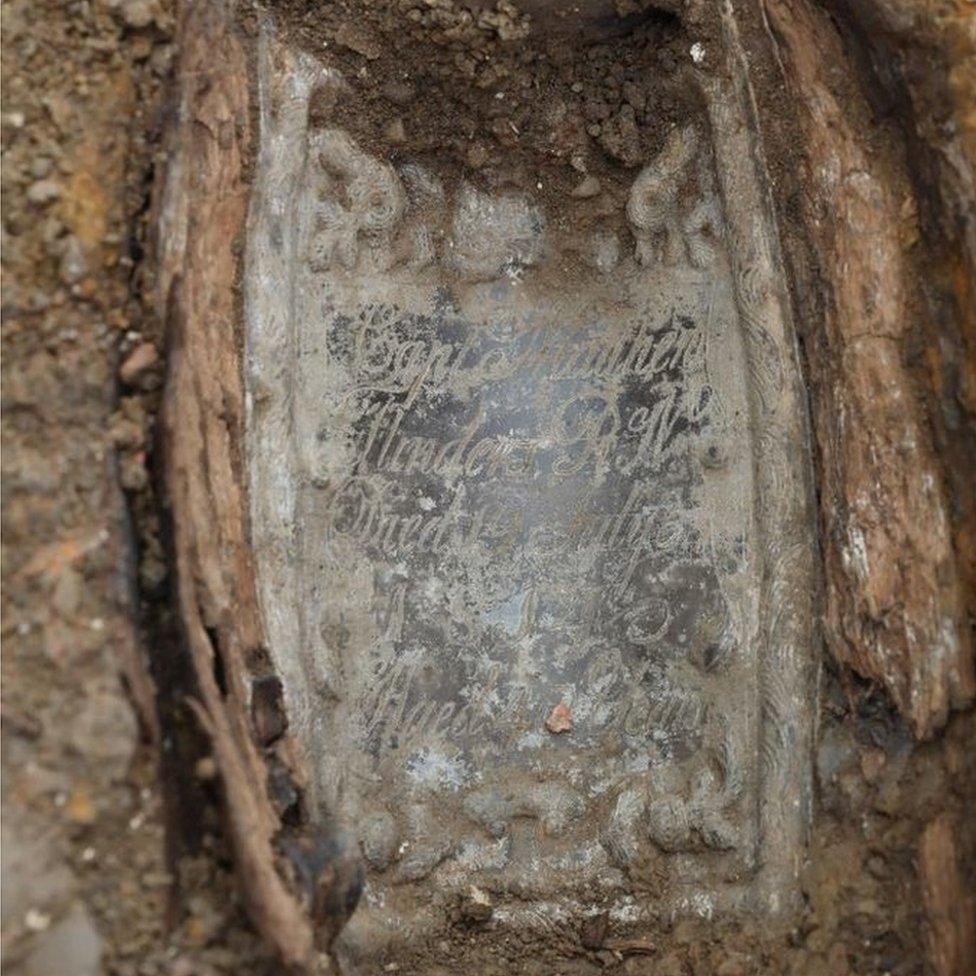
Archaeologists were able to identify the remains of the explorer by a lead plate placed on top of his coffin
The discovery so early in the dig has thrilled archaeologists who were not confident they would find Captain Flinders among the 40,000 people interred there, HS2 said.
They were able to identify his remains by the lead breast plate placed on top of his coffin.
How do you move the remains of 40,000 people?
Captain Flinders, who was from Lincolnshire, made several significant journeys, notably as commander of HMS Investigator. In the ship he became the first known person to navigate around the entire coast of Australia, confirming it as a continent.
He is also credited with giving Australia its name - although he was not the first to use the term, his work popularised its use.
You may also like:

Significant Australian legacy
Hywel Griffith, BBC News Sydney correspondent
You don't need to go far in Australia to find the name Flinders.
Streets, stations, mountains, towns, a river, a reef and a university all carry the captain's moniker.
But the man credited with mapping this vast country and identifying it as a continent also has a lesser-known legacy.
Matthew Flinders also found time to write a biography of Trim, his ship's cat.
Trim survived storms, a fall overboard and a shipwreck before, according to Captain Flinders, eventually being eaten by starving slaves in Mauritius.
There is even a statue in Sydney to celebrate Trim, and the obvious affection shown to him by his intrepid, seafaring owner.

The headstone marking his final resting place was removed following the expansion of Euston Station into part of the burial ground in the 1840s, and it was thought his remains had been lost.
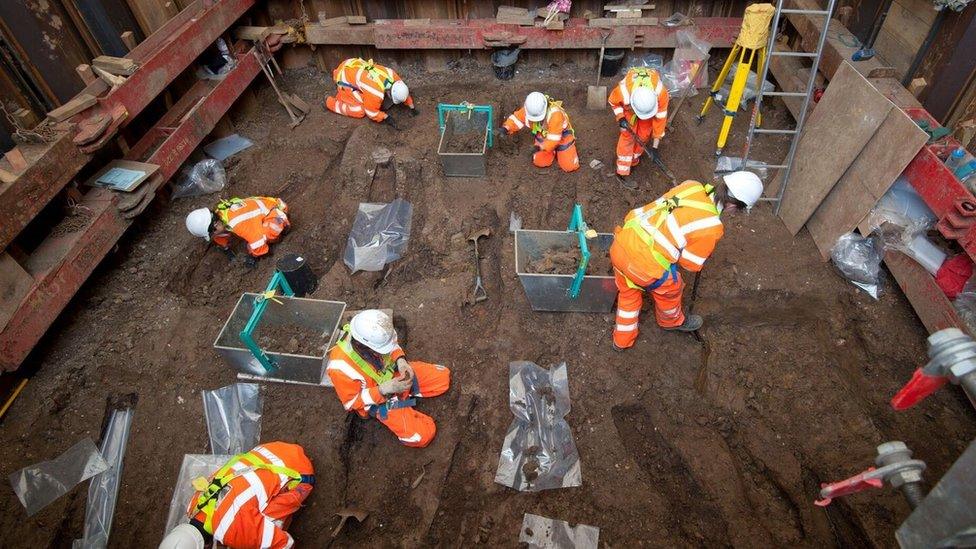
Over 200 archaeologists and specialists are working at the site beside Euston Station
At the bicentenary of his death, a statue was unveiled by the Duke of Cambridge at Australia House and later installed at Euston Station.
Helen Wass, HS2 head of heritage, said: "The discovery is an incredible opportunity for us to learn more about the life and remarkable achievements of this British navigator, hydrographer and scientist.
"Given the number of human remains at St James's, we weren't confident that we were going to find him.
"We'll now be able to study his skeleton to see whether life at sea left its mark and what more we can learn about him."
Captain Flinders will be reinterred with the buried population of St James's Gardens at a location to be announced, HS2 said.

Other notable people buried at St James's include:
Bill "the Black Terror" Richmond, a slave born in New York who became a free Londoner and a celebrated bare-knuckle boxer who was favoured by King George IV and taught Lord Byron to spar
Lord George Gordon, a political and religious activist famous for his part in the anti-Catholic "Gordon Riots" of 1780
James Christie, a British naval officer who became a leading auctioneer and founded Christie's auction house in 1766
- Published26 October 2018
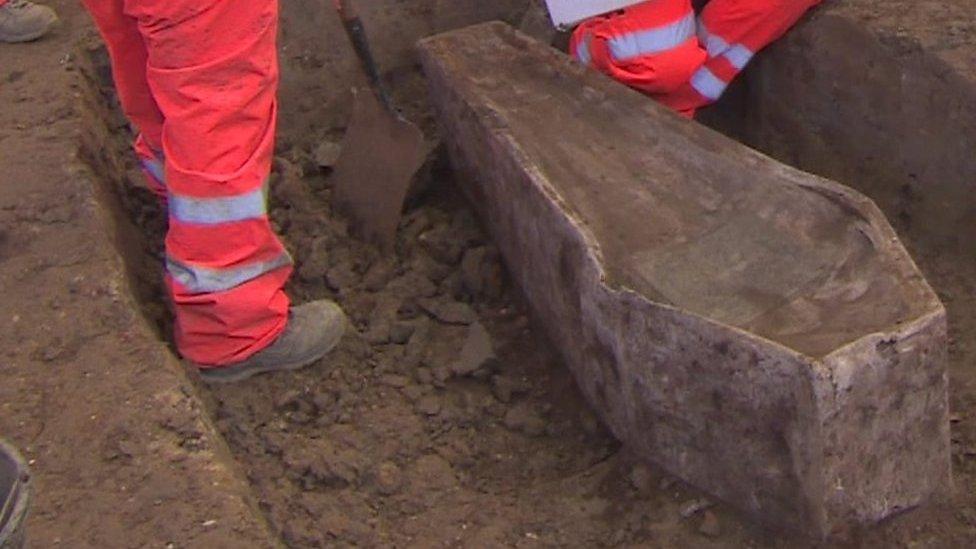
- Published19 August 2013
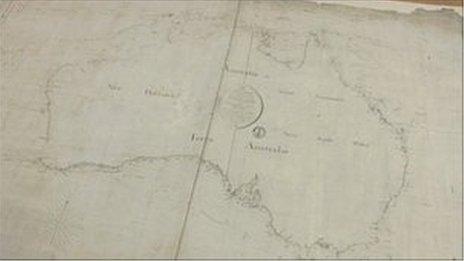
- Published18 July 2014
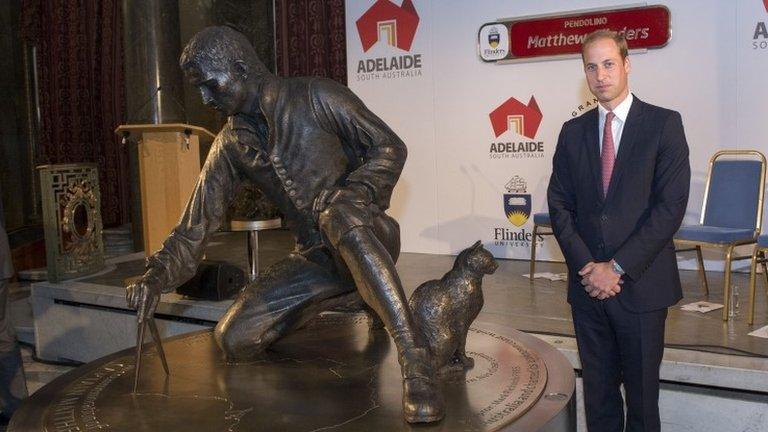
- Published26 October 2018
